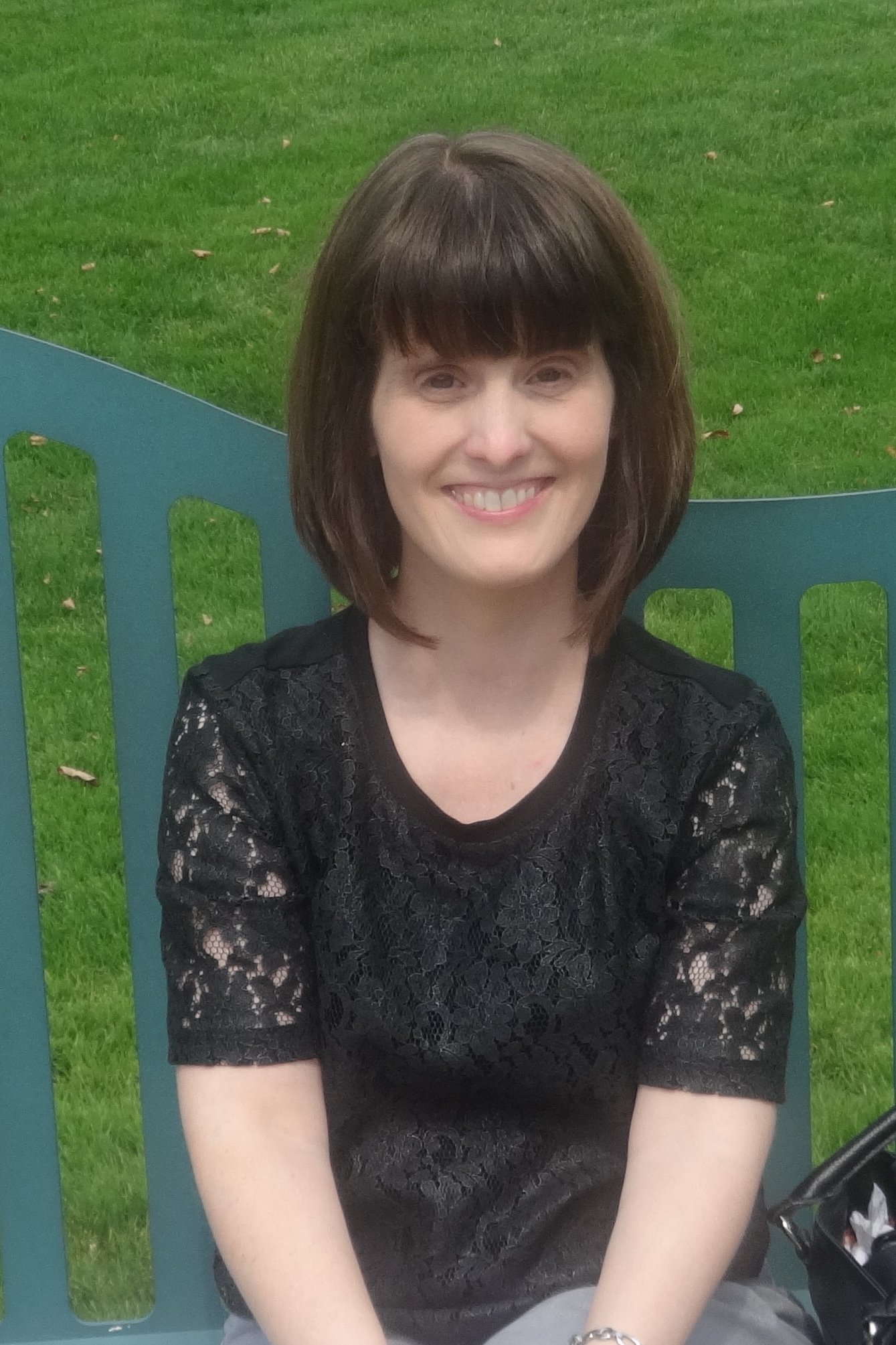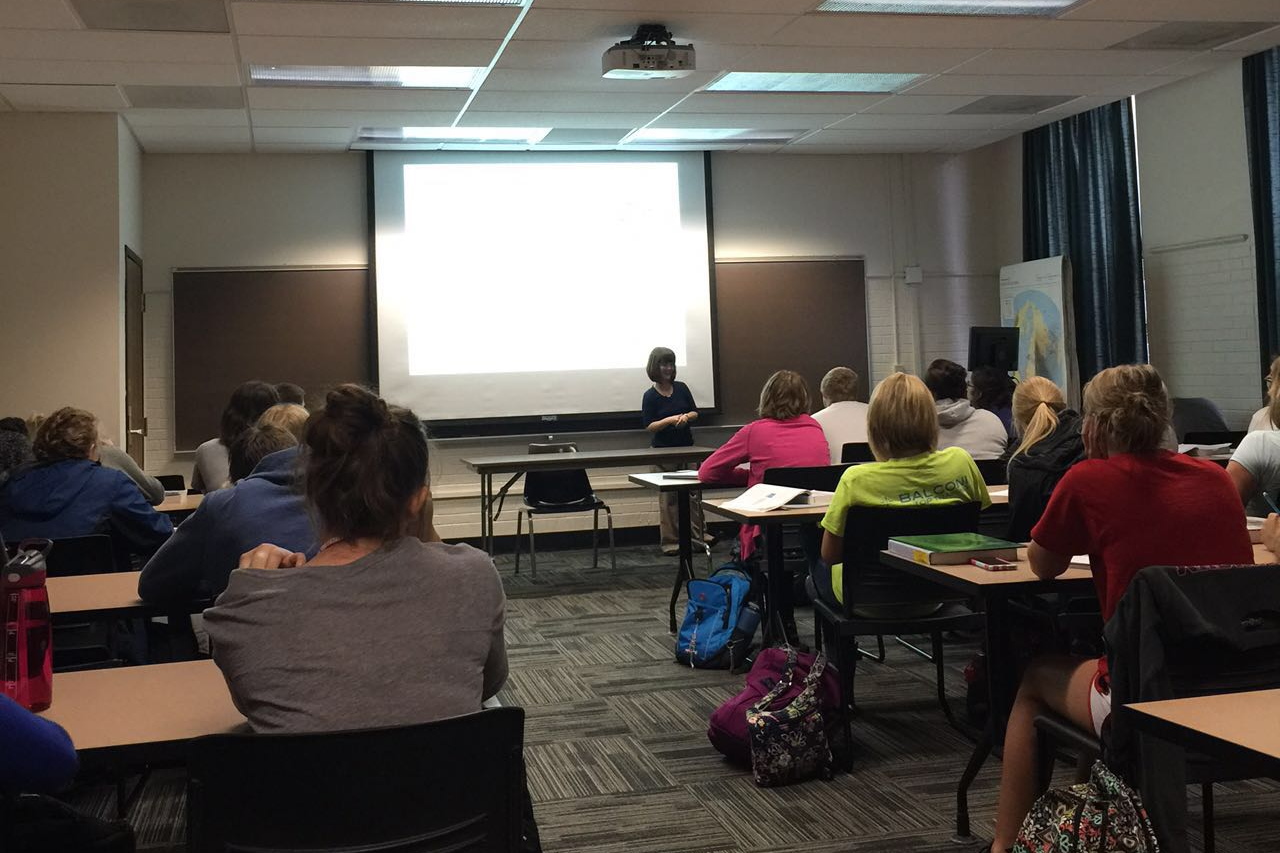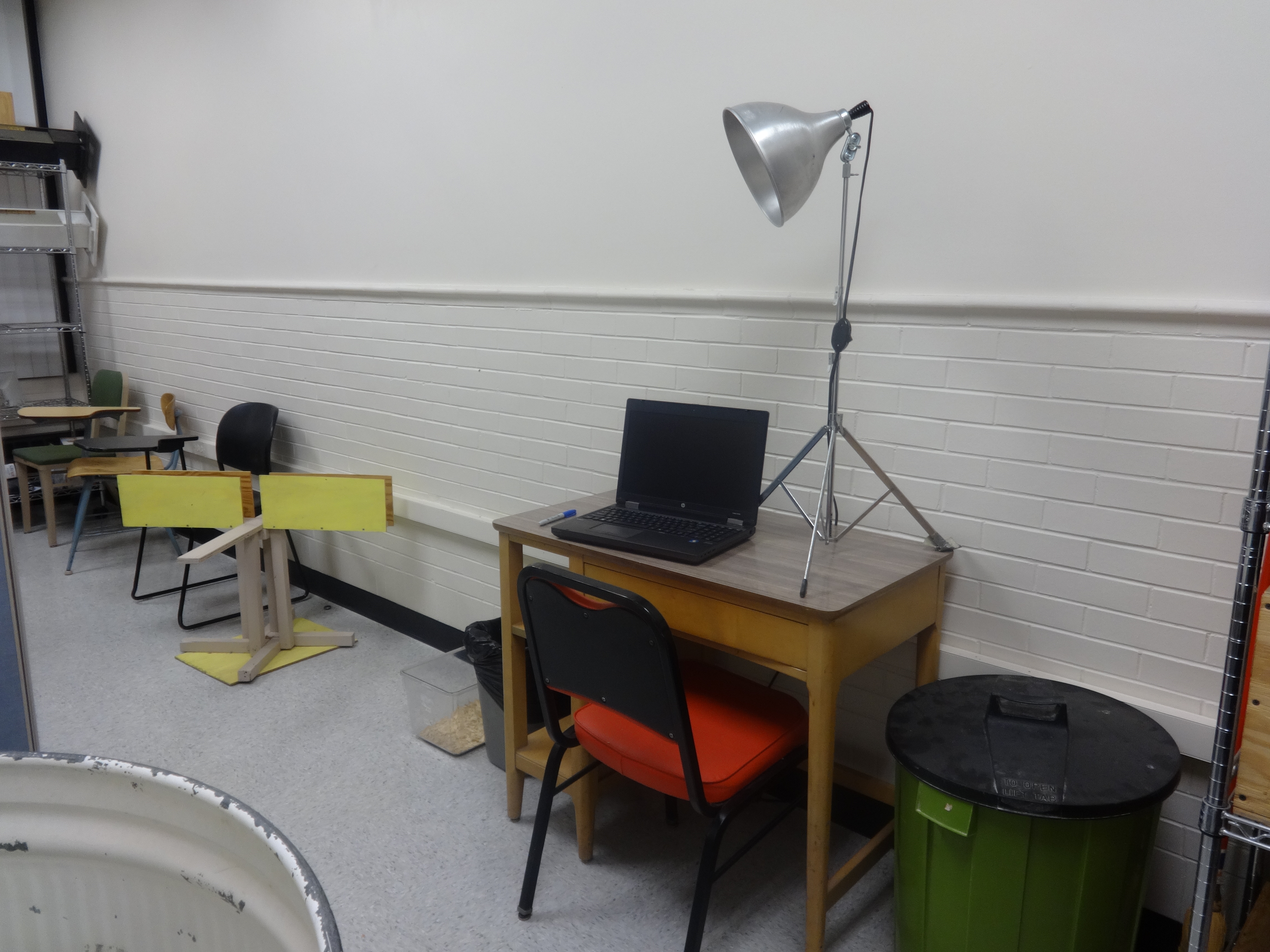 School name: Muskingum University
School name: Muskingum University
Type of school: Small liberal arts school
School locale: Rural southeast Ohio
Classes you teach: My courses include Introduction to Psychology, Physiological Psychology, Learning and Memory, Psychopharmacology, Topics in Neuroscience, Cognitive Neuroscience, and Advanced Experimental Psychology
What’s the best advice about teaching you’ve ever received?
The best advice came from an experienced professor who told me it was okay to let students fail themselves. In other words, I am not responsible for fixing all of their problems, or ensuring that all earn A’s. Now when students ask for extensions for papers or projects, I will usually grant them (minus a small penalty per late day), knowing that the final product is not often much different from the grade they would have received if they had completed the assignment on time. Thus, I do not have to determine the merit of each student’s excuse, while still being fair to other students.
What book or article has shaped your work as a psychology teacher?
As is true for many other educators, McKeachie’s Teaching Tips was the first book I read about teaching. As a teaching assistant before reading his book, I had simply relied on my own knowledge and undergraduate experiences. The book helped me think about how to best teach a wide variety of students, especially those whose educational needs and desires differ from my own.
Tell us about your favorite lecture topic or course to teach.
I love introducing students to the brain. Neuroscience intimidates many Intro Psych students, as well as those "forced" to take a biological psychology course as one of our core requirements for the major. Therefore, I enjoy watching them recognize how understanding the brain applies to their future careers in counseling, social work, teaching, etc. In the upper-level classes, students choose a topic of interest to them that I will not have time to cover in lecture. They research the biological explanations for this behavior or disorder and then give a 10 minute PowerPoint presentation to the class. Popular topics have included music's effect on the brain, sign language, synesthesia, and near-death experiences.

Describe a favorite in-class activity or assignment.
In my Intro sections, I make neuroanatomy less intimidating by having the students work in small groups to create brains using modeling clay. I ask them to label important brain structures and fissures. This is a quick 10 minute exercise that really excites the students. The competition can be fierce to be voted as the best brain by their peers and myself. I provide a small prize for the winning group.
What teaching and learning techniques work best for you? (quizzes? homework? take home exams?)
Student presentations. I stumbled onto this type of assignment because grading papers was taking me too long, so I needed a different assignment that allowed students to focus on a topic of interest, without requiring so much of my grading time (which I save for grading essay questions on tests instead). I have incorporated these presentations into all of my 200- and 300-level courses, in slightly different ways for each course. However, these are usually 5-10 minute PowerPoint presentations on a topic chosen by the student, typically from a list of possible topics I provided. The most important part of these presentations is for the student to connect their topic to the concepts we have covered in the course. Therefore, at the end, they are required to include a slide listing all of the course vocabulary words discussed in their presentation.
I usually schedule these presentations at the end of each chapter, or before each test. This ensures that not all of the presentations are at the end of the semester, but also that they serve as a review of the recently learned information, before the students are tested on that material. In between each of the student presentations, I try to stress important vocabulary words and connections to the information that will be on the upcoming test.
 What’s your workspace like?
What’s your workspace like?
My office is relatively large, but windowless and cluttered. Pictured here is part of my lab space where I can run rat experiments, or write in a quiet space.
Three words that best describe your teaching style.
Enthusiastic, encouraging, and interdisciplinary
What is your teaching philosophy in 8 words or fewer?
Make neuroscience approachable, fascinating, and relevant to students.
Tell us about a teaching disaster (or embarrassment) you’ve had.
For my very first teaching experience in graduate school, I wore a denim skirt that buttoned up the front. I stood on a chair to write at the top of the chalkboard before class started, and three of the buttons popped open. Thankfully another three or four stayed buttoned, but I quickly sat down on that chair and pulled it under the front table. I now wonder how many of those students noticed my wardrobe malfunction and how many just wondered what I was doing under the table as I re-snapped those buttons.
What is something your students would be surprised to learn about you?
I never wanted to teach. I was painfully quiet in my own undergraduate classes and avoided every possible opportunity to even tutor other students during those years. I was drawn to research because I thought it best fit my introverted personality. Then in graduate school I became involved in outreach activities to the local elementary schools. I loved watching those children see, hold, and understand the brain for the first time. Their enthusiasm was contagious and I realized that I could share my own love of neuroscience and research with many more people by teaching at a liberal arts school. Many students now think I'm very outgoing based on my teaching persona.
What are you currently reading for pleasure?
It feels as if most of my pleasure reading is written by Dr. Seuss, Richard Scarry, and Sandra Boynton, as I read with my 3 year-old son. But my own liberal arts education solidified my love of mystery novels. I was “forced” to take a Detective Fiction course in the English department as part of my undergraduate general education requirements, but the class ended up being one of my favorites. Currently, I am reading The Monkey’s Raincoat by Robert Crais.
What tech tool could you not live without?
I have students turn in most of their assignments through BlackBoard. It would be hard for me to go back to organizing hard copies of all the paperwork turned in each semester.
What’s your hallway chatter like? What do you talk to colleagues about most (whether or not it is related to teaching/school)?
There are six of us in the department and we all genuinely like one another, so our discussions run the gamut of possible topics. We discuss everything from students’ research projects to pop culture, and everything in between. At least once a year we bring our families together at one faculty member’s house for fun and food. We also attend the Midwestern Psychological Association conference and together enjoy all the perks available in a big city.
